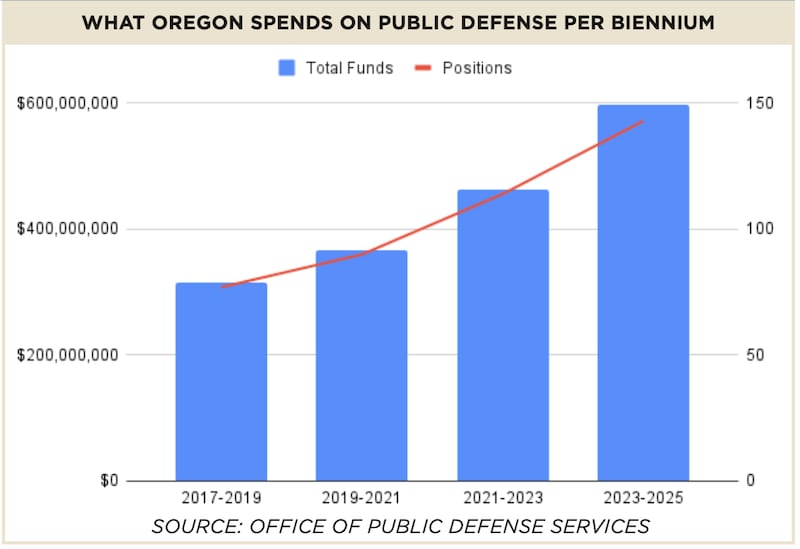As lawmakers passed a flurry of spending bills last month, they earmarked an additional $100 million for the Office of Public Defense Services, which funds legal services for defendants across Oregon who cannot afford attorneys.
That system has been in crisis in recent years as overworked public defenders have refused to take on additional cases, citing their rising caseloads. As a result, criminal defendants are now languishing in jail without a lawyer, a constitutional violation. (As of Aug. 1, there were 36 people awaiting a lawyer in Multnomah County jails and more than 250 statewide. Thousands more are out of jail but without a lawyer as they await trial.)
Fixing that problem won’t come cheap, explains Sen. Floyd Prozanski (D-Eugene). Much of the money is earmarked for programs lawmakers hope will attract new attorneys, like retention bonuses and increased hourly fees. But the upshot: “We’re going to have a system that is actually fair.”

Along with the additional money, legislators made sweeping changes to how the state will manage its public defenders going forward.
The office is moving to the executive branch and out of the purview of the state’s chief justice, who unilaterally dissolved its governing board last year after a dispute with its former director. And it will begin hiring its own trial lawyers, rather than relying solely on contractors, as it moves toward eliminating the “consortia” subcontractor model favored by private attorneys.
The goal, Prozanski says, is to hold providers accountable while shielding the board from partisan politics.
“I am cautiously optimistic,” says Rep. Paul Evans (D-Monmouth), who, along with Prozanski, serves as co-chair of a workgroup dedicated to addressing the crisis. “We didn’t get into this situation overnight—and it’s not going to be fixed overnight.”

